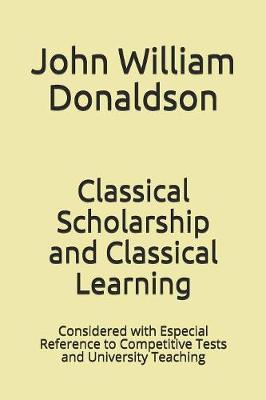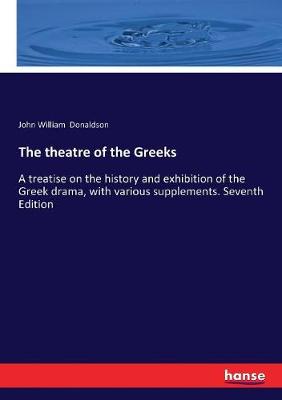Cambridge Library Collection - Classics
3 total works
John William Donaldson's 1856 essay tackles the topic of university reform, a hotly debated political issue in his day. Donaldson presents a series of suggestions for the improvement of university teaching, and argues for the value of a classical education. Drawing upon his experience both as a headmaster and as a scholar at Trinity College, Cambridge, he considers himself well-placed to address the subject of education, maintaining that there are 'not many who can claim a better right to speak without one-sided prejudice and narrow-minded partiality to some hackneyed system'. He discusses many aspects of the subject, including the meaning of the term 'university', the college system at Cambridge University and the merits of studying classics in comparison to mathematics. Donaldson also addresses the class system, emphasising the need for all classes to be educated. This lively and approachable book foreshadows the debates of our own century.
John William Donaldson (1811-61), though somewhat unorthodox in his methods, was an important, if controversial, figure in the development of comparative philology. In this 1844 publication, he attempts to supply young English scholars of Latin with an introductory guide to Latin philology by outlining the origins of the Roman people and, through this, explaining the foundational structures of the Latin language and how they gave rise to Classical Latin. Epigraphic evidence, drawn from the Twelve Tables in particular, is examined as part of the enquiry into Old Latin, and other Italic languages such as Umbrian, Oscan and Etruscan are considered as part of the development of a more standardised Latin language. Although many of the conclusions Donaldson draws are based on limited evidence, the book remains an interesting specimen of early comparative philology. His earlier work on Greek, The New Cratylus (1839), is also reissued in this series.
Sometimes accused of privileging controversy over scholarly restraint, the philologist John William Donaldson (1811-1861) was a precocious talent. Only twenty-five when this book was first published in 1836, he was already a fellow of Trinity College, Cambridge, and would live to see his book appear in numerous editions. Revisiting the subject of a successful book published a decade earlier by P. W. Buckham (died 1829), a fellow of St. John's College, Donaldson's colourful new approach proved popular with readers. The appeal of his writing endures, and few can resist his invitation to 'strip our thoughts of their modern garb' and escape into a world of dramatic comedy and tragedy. From the historical account of Thespis, the forefather of Western acting, to an engaging analysis of Euripides and Sophocles, this introduction retains all of the appeal that made it a standard text on the Victorian student's bookshelf.


